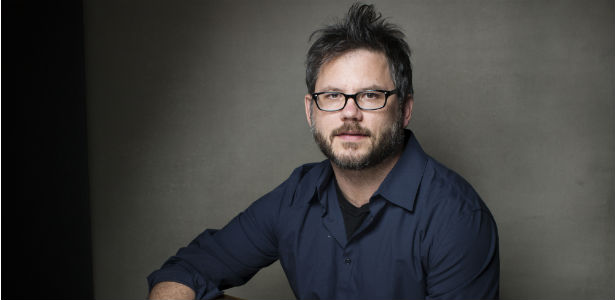
Director Jacob Kornbluth from the film Inequality For All poses for a portrait during the 2013 Sundance Film Festival. (Photo by Victoria Will/Invision/AP Images)
Editor’s Note: Each week we cross-post an excerpt from Katrina vanden Heuvel’s column at the WashingtonPost.com. Read the full text of Katrina’s column here.
“Chilling.”
That’s how one reviewer describes the experience of watching Harvey Weinstein’s latest film. Only the movie in question isn’t Erased, Weinstein’s pulse-pounding thriller about an ex-CIA agent on the run. Nor is it Only God Forgives, in which Ryan Gosling finds himself caught up in a gritty underground world of Thai drug smuggling, prostitution, rape and murder.
The movie is, in fact, a documentary, but one more disturbing than international criminal conspiracies and more devastating than any Sharknado. It’s about income inequality. As Clinton Labor Secretary Robert Reich intones in the film, “Of all developed nations, the United States has the most unequal distribution of income, and we’re surging towards even greater inequality.”
Inequality for All, directed by Jacob Kornbluth and set to be released nationwide on Sept. 27, comes at a critical moment for America. September 15 marks the five-year anniversary of the collapse of Lehman Brothers—fueled by a toxic combination of deregulation, subprime lending and credit-default swaps—that precipitated the 2008 global economic crisis and laid bare the rot at the heart of our economic system. It was largely this orgy of greed that led the first Occupy Wall Street protesters to Zuccotti Park on September 17, two years ago next week.
In the half-decade since Wall Street’s self-induced crash, the country has hovered between outrage (that the perpetrators walked off scot-free and bonus-laden) and apathy (that anything will ever break the iron bond between Congress and the financial industry).
Until now, hopefully. Following the diminutive Reich on his “statistics-driven and impassioned” crusade, Inequality for All throws into sharp relief the numbers and stories we hear. Combining footage from Reich’s electrifying Berkeley lectures with interviews, news clips and rich graphics, the film weaves a compelling narrative about how and why, since the late 1970s, income inequality has risen to crisis levels.
Editor’s Note: Each week we cross-post an excerpt from Katrina vanden Heuvel’s column at the WashingtonPost.com. Read the full text of Katrina’s column here.


